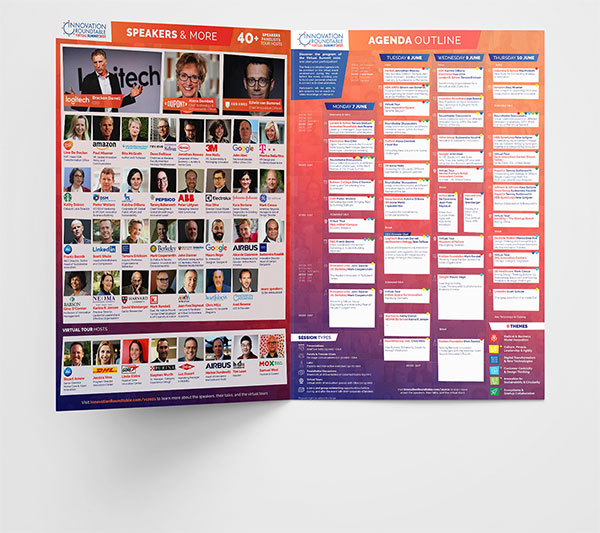Labs
Immersive sessions with short presentations and group discussions / exercises facilitated by professors and corporate experts
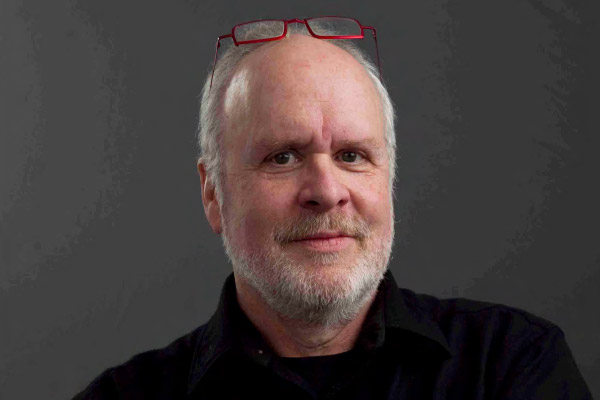
John Danner
Sr. Fellow UC Berkeley-Haas & Princeton; WSJ best-selling author
UC Berkeley-Haas & Princeton
John Danner is a bestselling author, faculty member at two of the world’s finest universities, popular public speaker, experienced executive, and advisor to global enterprises, government agencies and emerging ventures. His work as a management consultant, entrepreneur, lawyer and public official has centered on helping organizations deal with the leadership, strategy and innovation challenges and opportunities of unprecedented change.
He is the co-author of the Wall Street Journal bestseller, Built for Growth: How Builder Personality Shapes Your Business, Your Team, and Your Ability to Win (Harvard Business Review Press, 2017), about the personality characteristics of highly successful entrepreneurs; as well as the Amazon bestseller, The Other ‘F’ Word: How Smart Leaders, Teams, and Entrepreneurs Put Failure to Work (John Wiley & Sons, 2015), about strategies to leverage failure as a strategic resource. His articles and interviews have appeared in the Wall Street Journal, New York Times, Financial Times, Entrepreneur, Inc., Forbes, The Economist, Chief Executive and many other US and global media channels.
As a member of the professional faculties at the University of California Berkeley and Princeton University, he teaches executives, graduate and undergraduate students from around the world; and has launched popular campus-wide courses on both campuses. He also anchors and contributes to a number of executive education programs on leadership, strategy, innovation and entrepreneurship for several other prominent organizations in various locations globally – at UC Berkeley, Yale, the Aspen Institute and other US and international organizations.
Tools to Drive Innovation & Growth via a More Productive Relationship with Failure
Mark Coopersmith and John Danner are co-authors of the best-selling book The Other “F” Word: How Smart Leaders, Teams, and Entrepreneurs Put Failure to Work (Wiley, 2015). They also advise organizations around the world on driving innovation, organizational change, and growth. Building on themes they introduce in their “keynote conversation” immediately preceding this Lab, Mark and John will lead an interactive session where attendees gain a better understanding of their personal “failure-savviness” as leaders, and also gain experience with a few of the activities, tools, and exercises from their book “The Other ‘F’ Word.” Mark and John will also share a number of best practices they identified in companies while undertaking research for the book.
During this Lab, participants will…
- Identify specific examples of how to approach setbacks or failures more productively, to gain strategic insights and accelerate change,
- Assess individual and organizational performance across the seven stages of the Failure-Value-Cycle,
- Investigate how to reframe innovation initiatives in more productive ways, leveraging insights from nonbusiness disciplines such as science and engineering,
- Participate in an exercise or two that they can share within your broader organization
- Culture, People, Leadership & Agility
- Virtual Lab

Scott Shute
Head of Mindfulness and Compassion
Scott is at the intersection of the workplace and ancient wisdom traditions. He has been an active advocate for customers and employees in the technology space for over 20 years, with roles ranging from sales, customer advocacy, and customer service leadership. Previously, he was the Vice President of LinkedIn’s Customer Operations organization. In his current role as Head of Mindfulness and Compassion at LinkedIn, Scott blends his lifelong practice and passion with his practical leadership and operations experience. His mission is to change work from the inside out by “mainstreaming mindfulness” and “operationalizing compassion.” He is the author of the book The Full Body Yes, available in May 2021.
Changing Work from the Inside Out
The talk will focus on why it’s time to mainstream mindfulness and operationalize compassion. Mr. Shute will share the innovative programs that LinkedIn, and firms like them, are implementing to help employees maintain their mental well-being.
- Why compassion is a strategic advantage for companies, teams, and individuals
- How mindfulness (mental exercise) is on a journey to the mainstream like physical exercise has been for the past fifty years
- What organizations and individuals can do to bring these practices to life
- Culture, People, Leadership & Agility
- Virtual Lab
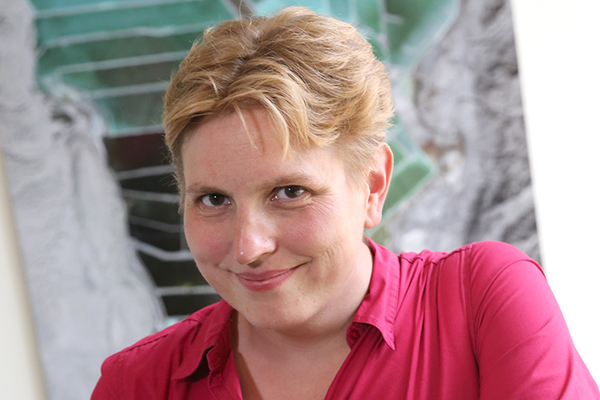
Alice de Casanove
Culture, Intrapreneurship Director, Airbus North America
Airbus
Alice de Casanove is in charge of innovation culture in Airbus North America (4000+ employees across the USA), where she fosters the relevant mindset to accelerate future businesses, and she leads the cultural roadmap for digitalization and innovation.
In 2018, Alice was nominated as Woman in the innovation of the year by l’Usine Nouvelle for her innovation project of beehives monitoring by satellites.
Alice plays a determining role in the publication of the ISO referential on good practices in innovation management (ISO 5600 series). Since 2013 she has chaired the international committee gathering 52+ countries in close coordination with WTO, OECD, WIPO, and the World Bank.
Alice has started her career in a video deep-tech start-up then she joined Sagem to manage and develop the value of the Innovation portfolio of the French telecom manufacturer. She has joined the entrepreneurial adventure of Actimagine to develop video technologies on handheld devices (video games consoles and smartphones). Actimagine became the Nintendo Europe R&D center after being bought by NINTENDO. Alice graduated from Telecom Paristech and holds a Ph.D.
Make Your Culture More Agile with Future-Fit Manifesto
Alice de Casanove and Jean-Yves Reynaud will lead an exercise on making culture more agile. They will start the exercise off with a short presentation on the Future-Fit Manifesto followed by two consecutive situation-based group discussion sessions. The session will focus on the following:
- Learn about the principles, context, and intention behind the future-fit manifesto
- Discuss in groups two common situations that can arise within organizations
- Understand how a company’s response to those situations serves to characterize its corporate culture
- Learn the relevant future-fit principles related to each situation and examine how those principles can be implemented within your organization
- Culture, People, Leadership & Agility
- Virtual Lab
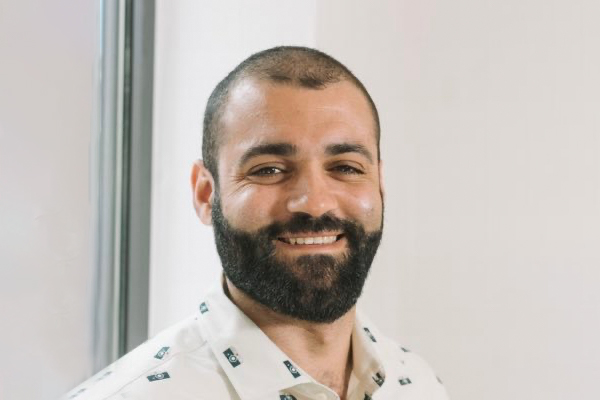
Mauro Rego
Sr. Interaction Designer, Google AI
Senior designer and education enthusiast with experience on designing end-to-end digital services, team management and organizing learning formats for communities. In addition to crafting, I have been teaching professionally at universities and companies.
Learning by Doing: Visual Thinking and Illustrations in a Business Context
Being visual is one of the fundamentals for a good brainstorming session. Still most people feel more comfortable with sharing their thoughts using words. Visual is a language that everyone knows, but haven’t had a chance to practice. This session is an introduction to how and why to bring it closer to your daily work.
- Customer Centric Innovation & Design Thinking
- Virtual Lab

Mark Randall
Executive Director, Kickbox Foundation - Former Chief Strategist & VP Creativity at Adobe
Kickbox
Mark Randall semi-retired in 2019 after 12 years as Adobe’s Chief Strategist and Vice President of Creativity, incubating disruptive new businesses and leading the company’s global innovation process. To empower Adobe’s 20,000 employees to develop their own ideas Randall created Kickbox, a unique innovator’s toolbox which Fortune Magazine called “a magical cardboard bundle to kickstart creative problem solving. In 2015 Adobe open-sourced Kickbox leading to its adoption at thousands of enterprises, universities, governments and non-profits. Kickbox has since grown into the world’s most popular enterprise innovation process with Adobe being been named to both Forbes and Fast Company’s Most Innovative Companies” lists. The free, open source Kickbox is now a cross-industry best practice curated by hundreds of volunteer experts at Kickbox.org, a non-profit community of innovation executives, coaches, educators and students. In addition to Kickbox, Randall’s own innovations at Adobe included the creation of new businesses such as Adobe Live and Adobe Pass, which launched the industry shift to TV Everywhere earning an Emmy Award for technical achievement. Randall also pioneered key strategic initiatives including Adobe's pivot into digital content with the $800M acquisition of Fotolia.
Solving Remote Innovation Challenges with the Kickbox Open Source Innovator’s Toolkit
In this interactive workshop you’ll adapt the open source Kickbox innovator’s toolkit to fit your organization’s needs and objectives. Guided by the creator of Kickbox, participants will emerge with a digital Kickbox suitable for pilot deployment.
- Radical & Business Model Innovation
- Virtual Lab

David Weinberger
Senior Researcher
Harvard University
In books, articles, posts, classes, and talks, David Weinberger, Ph.D. explores the effect of the technology on ideas. A long-time affiliate of Harvard’s Berkman Klein Center for Internet & Society, he recently was a writer-in-residence at Google AI, was co-director of the Harvard Library Innovation Lab, and was a journalism fellow at Harvard's Shorenstein Center. Dr. Weinberger has been a marketing VP and adviser to high tech companies, and a Franklin Fellow at the U.S. State Department. He is the author of best-selling and award winning books, including The Cluetrain Manifesto (co-author) and his latest, Everyday Chaos. He has a Ph.D. in philosophy from the University of Toronto.
Peeling the Onion of AI Ethics: Machine Learning’s Difficult Trade-Offs
Every application of AI has moral implications that we have to consider as businesspeople, customers, and citizens. But AI — especially the sort known as machine learning — “thinks” about things very differently than we humans do. This is leading us to puzzle through moral questions in new and helpful ways.
In this session we will:
- Understand what about machine learning makes it morally problematic
- Learn how it is altering our ideas about fairness
- Consider in depth, and through multiple iterations, how we can usefully think through the moral implications of seemingly simple decisions about the training and deployment of machine learning applications.
- Digital Transformation & New Technologies
- Virtual Lab
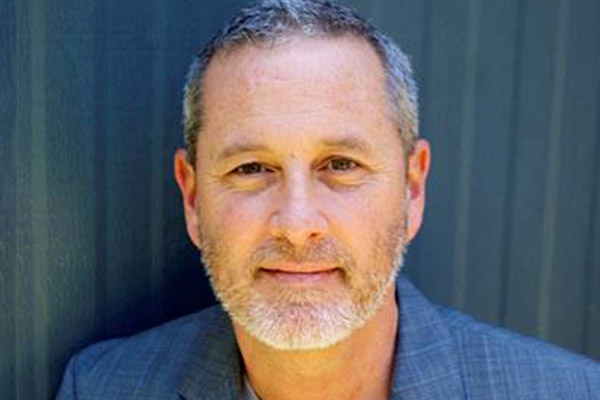
Chris Mills
Director for Corporate Programs
The Heartfulness Institute USA
Chris Mills is a 20-year advertising and marketing veteran and is currently a Director, Marketing Strategy for Anthem, a leading U.S. healthcare company. Chris received his M.B.A. in Marketing and Management from the University of Oklahoma and holds a Bachelor of Science degree from Texas Christian University. Chris worked as an advertising account director prior to transitioning to the marketing side within the healthcare and insurance industries. Chris is a practitioner, instructor and student of Heartfulness Meditation, which he has been practicing for over 22 years. He is also a Director for Corporate Programs offered by The Heartfulness Institute USA, where he consults with businesses on development of relaxation and meditation programs as part of their overall health & wellness initiatives. Chris lives with his family in Torrance, California.
Heartfulness: Enhancing Creativity through Meditation
Meditation is a mainstream activity in business and can help employees relax, improve focus & productivity and reduce stress levels. Medical research has shown health improvements among individuals who meditate ranging from improved cardiovascular health, reduced symptoms of depression and anxiety and increased coping and problem-solving skills. Meditation can also be a key tool to inspire creativity, to problem solve and to support collaboration amongst team members. As a 15+ year instructor of Heartfulness Meditation and a Marketing Director for a large healthcare company, Chris Mills will present an experiential workshop based on Heartfulness Meditation. In this workshop he will:
- Provide insights on how meditation fosters personal & team-based creativity and helps develop problem-solving skills
- Demonstrate a simple and practical relaxation technique that participants can easily incorporate into their own lives
- Lead an experiential meditation session that can take participants into a deeper state of being, a state ripe for the development and manifestation of creative thought.
- Culture, People, Leadership & Agility
- Virtual Lab
















